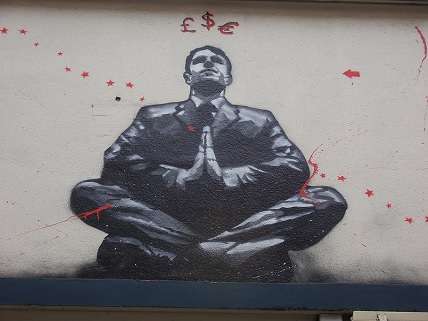Macron Victory Not Yet a Win for Globalization or Economic Reform
An electoral victory is just a necessary prerequisite to liberalization and reform; without it, populists will only gain power.

Emmanuel Macron, the former economy minister who pushed liberalization under President Francois Hollande, roundly defeated the National Front's Marine Le Pen, who campaigned on an anti-immigration, big government platform.
Le Pen's candidacy was about more than membership of the European Union or the merits of an open society, but about the liberal, pro-market values that have lifted billions out of poverty in the last half century. Her defeat is not yet a win for globalization or economic liberalization.
"The problems are still there," analyst Antonio Barroso told Reason last month. "And it's the challenge of these leaders, particularly Macron, to alleviate some of these problems in the next five years, otherwise we'll be in the same position next time."
Neither is Macron's victory a victory yet for globalization or free markets. And it's certainly not a win for Barack Obama, the French media, or the West, as MSNBC's Joy Ann Reid suggested. It's barely a win for the EU, which is still bungling Brexit negotiations and facing a loss of popularity across the continent—even countries that have joined the EU more recently than Western European ones and have been historically enthusiastic, like Poland, have elected Euroskeptic governments.
Macron must now commit to the kind of economic reforms that get the French government (which accounts for 57 percent of GDP and carries a GDP to debt ratio of 100 percent) out of the way, alleviating the economic pain it causes and dispelling the appeal of simplistic populists—these are reforms the EU has sometimes suggested, but they are not the kinds of reforms wholeheartedly supported by other factions commenters like Reid insist the French election is a victory for.
Hollande becomes the first president in the history of the French Fifth Republic not to seek a second term. The Socialist started his presidency rejecting his predecessor's attempts at reform but eventually appeared to come to understand the need for reforms and liberalization to rehabilitate the French economy.
In 2015, the Hollande government passed a set of reforms that were known as the "Macron Law," which included such provisions as making it easier to lay off employees and allowing more stores to stay open on Sundays and in the evenings. The law was passed without a vote in the parliament, which Macron defended from criticism of being anti-democratic. "Is it democratic to keep procrastinating?" Macron said at the time. "There is a moment when you have to act."
Macron's proposed reforms during the presidential campaign were not as well-defined or bold as that of the Republicans' Francois Fillon, who became embroiled in a scandal over hiring family members for no-show government jobs. In the end, the second round presidential election was the first that did not include a member of either of France's major two parties, the Socialists and the party now known as the Republicans.
Le Pen's loss was not unexpected—she trailed by about 20 points in head-to-head polling against Macron and ultimately finished nearly 25 percent behind him. Comparisons of Le Pen to both Brexit (because of her opposition to the EU) or Donald Trump (because of their shared rhetoric on immigration and radical Islamic terrorism) are misguided. Brexit was a referendum on British membership in the European Union—untethered from specific policy agendas, which will be worked out in the June parliamentary elections there and beyond. And Trump, despite his populist, pro-entitlement rhetoric, is not the kind of anti-capitalist that Le Pen made herself out to be.
Le Pen was able to perform better than any previous National Front candidate (though in a strategic move she technically left the party weeks before the election) because in the last decade she has tried to distance herself and her party from the kind of anti-Semitism and racism of her father, Jean-Marie Le Pen, who disowned her after she suspended his party membership.
The younger Le Pen, as economist Emmanuel Martin explained to us last month, also ditched any lip service to smaller government. Instead she embraced the welfare state, winning over much of the old French Communist Party and many trade unionists along the way.
Le Pen's success, as far as it went, is a symptom of decades of anti-free market rhetoric, where the same economic interventionists and central planners who thwart the progress brought on by globalization blame the forces they seek to stop on their own failures. The growing support for illiberal, economically backward policies across the political spectrum in the West is a troubling product of that rhetoric. Ironically, it comes while many Latin American countries, as The Economist's intelligence unit pointed out earlier this year, are returning to the sober policies of pro-market, center-right candidates after years of populist leftists who have left their populations worse off than they were.


Show Comments (50)